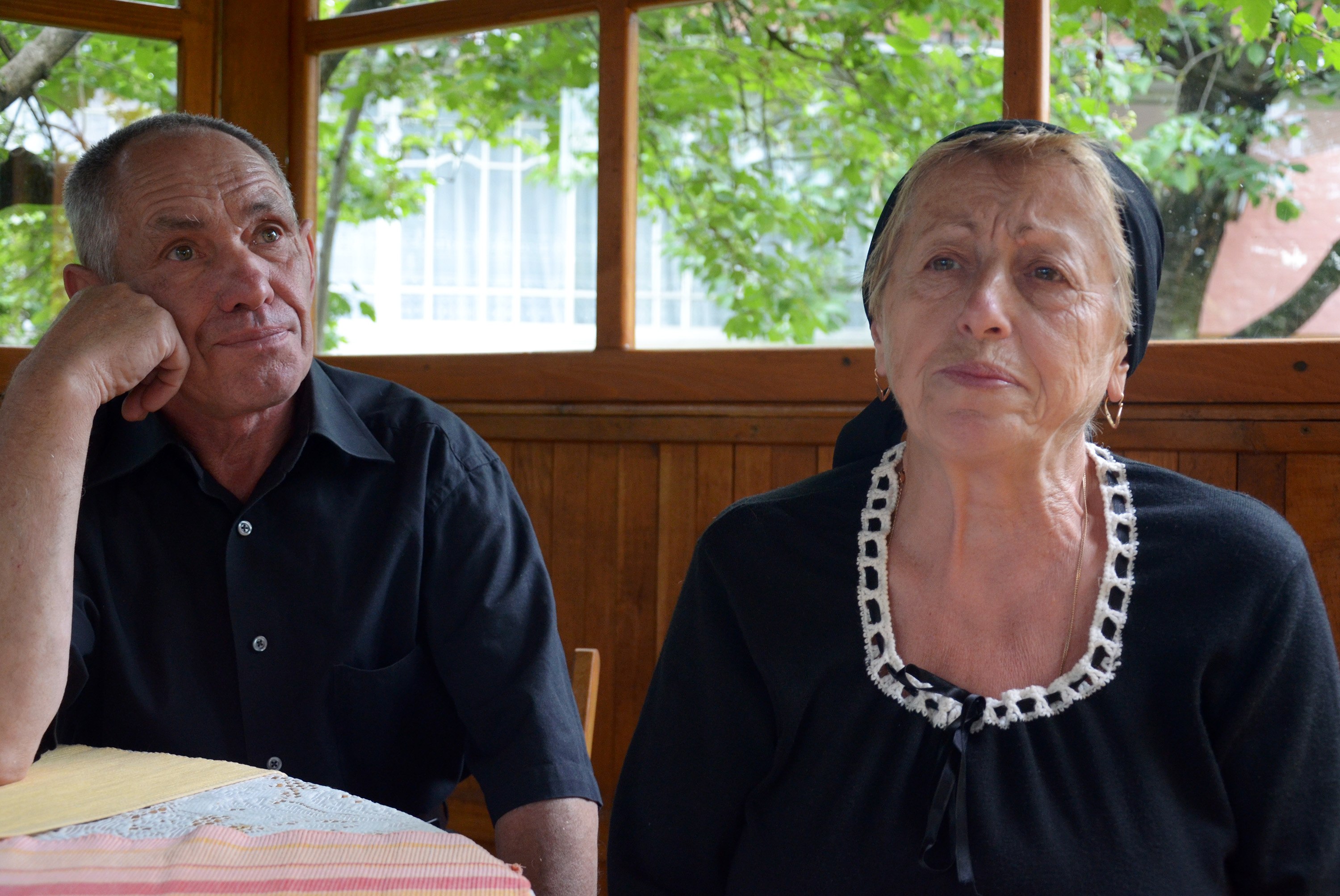Editor's note: Ukraine's Heroes is a Kyiv Post project devoted to Ukrainian army heroes wounded and fallen in Russia's war against the nation. Periodically, we will tell stories of these wounded warriors, many of whom need money for treatment, surgery and prosthesis.
Thousands of people holding candles turned out on March 29 to welcome
home their slain hero, Ivan Zubkov, the company commander of Ukrainian
defenders of the ruined Donetsk Airport. He was killed on Jan. 20 as
Ukraine was forced into another surrender by Russia-separatist forces.
The homecoming corridor for Zubhov stretched for 20 kilometers, right up to the hero’s home in the small town of Derazhnya in Khmelnytskyi Oblast.
The family traveled to Kyiv to receive a posthumous Hero of Ukraine medal on June 10 presented by President Petro Poroshenko and to let Ukraine’s leader know that they believe the sacrifice is not in vain. “We said it there, at the president’s and can repeat it now — we don’t believe all this is for nothing, we know that his boys will finish what he started and Ukraine will win this war,” Antonina Zubkova, the soldier’s mother says. “My son would always say that Ukraine will win.”
Only five-feet tall, Zubkov was the heart and soul of his whole brigade, a great commander, his comrades say. He was a wise strategist, a fearless warrior and a kind friend, always responsive to everyone’s needs.
Despite a small body he truly was a big man, someone to look up to,” says his comrade Adnriy Kazmirchuk.
Donetsk Airport had been defended by outnumbered Ukrainian army forces for some 240 days and was ruined by two massive explosions at the end of January. It was for their courage and dedication that the enemy called its defenders “cyborgs.” Zubkov was at the airport for the last two rotations and had spent almost 30 days defending the territory in December and January.
After his battlefield death, volunteers found Zubkov’s remains only two months later in a Dnipropetrovsk morgue. They recognized him by a lucky necklace. Their discovery was later confirmed by a DNA match.
Almost half a year later, his parents Antonina and Ivan Zubkov still wear black and cannot let their son go. “We’ve been crying for five months and 10 days since the moment we knew he was dead,”
Ivan Zubkov, the cyborg’s father says, as he wipes tears and hugs his wife.
Everything in the house was made by their son’s hands, they say. “He repaired this house after his grandmother died, built a summer kitchen, all these fences, the arbor, even started constructing the sauna, never finished though,” his mother says.
A professional soldier, their officer son was one of only five groupmates who chose Ukraine over Russia after graduating from the Kyiv Military Naval School in 1995.
“He was a patriot even then,” his mother Antonina says.
Three years later, he changed his profession and began working as a manager at a meat factory and then started his own transport business.
“He would say the Ukrainian army is in ruins and he didn’t want to watch it ruined even more,” Antonina Zubkova says. Russia’s war against Ukraine prompted his return to the military. He planned to stay in the army after the war is over and would reject all the parents’ attempts to convince him stay at home.
“If we don’t fight there now, they’ll be here in a week, he would say to us,” his mother recalled tearfully. She remembers his last hug, words and messages.
“Around noon on Jan. 20 he called his wife, asked how the kids were, and if we all are okay, said to tell us he was okay and said he loved her,” Zubkova recalls. “Later his boys told us he was already injured then and probably knew no help can be expected, he was saying his farewells.” Zubkov was injured on Jan. 19, but kept fighting and coordinating the battle until the very end.
The living room of the family’s house now looks like a museum to the slain son. His pictures are on the table and on the nightstand, his war flags are on the walls and his Hero of Ukraine medal is displayed prominently. “We much more would prefer our alive child, but let it be here for his daughters,” Zubkov’s mother says.
Zubkov was married and had two children — Valentyna, 13, and Sofia, almost two years old.
The family does need help to live through the dark times.
“Families need time to grieve and cry. Pain goes with the tears,” says Viktoria Kochubey, a psychologist and the coordinator of the Psychology Crisis Service. She says the family would better be surrounded by friends, ready to listen to them.
Zubkov’s comrades say in touch with the family, which helps.
“I visited his family several times and will come again when I am back home, I promised his daughter I would visit,” says Zubkov’s comrade, Kazmirchuk, who is still at the war.
And the most precious document that Zubkov’s comrades recently brought back from war when coming home for their short vacations was an address from high military command to local authorities of Zubkov’s native town — to name a street after their friend and commander. “After all we are alive as long as we are remembered,” Kazmirchuk says.
Kyiv Post staff writer Daryna Shevchenko can be reached at [email protected]


